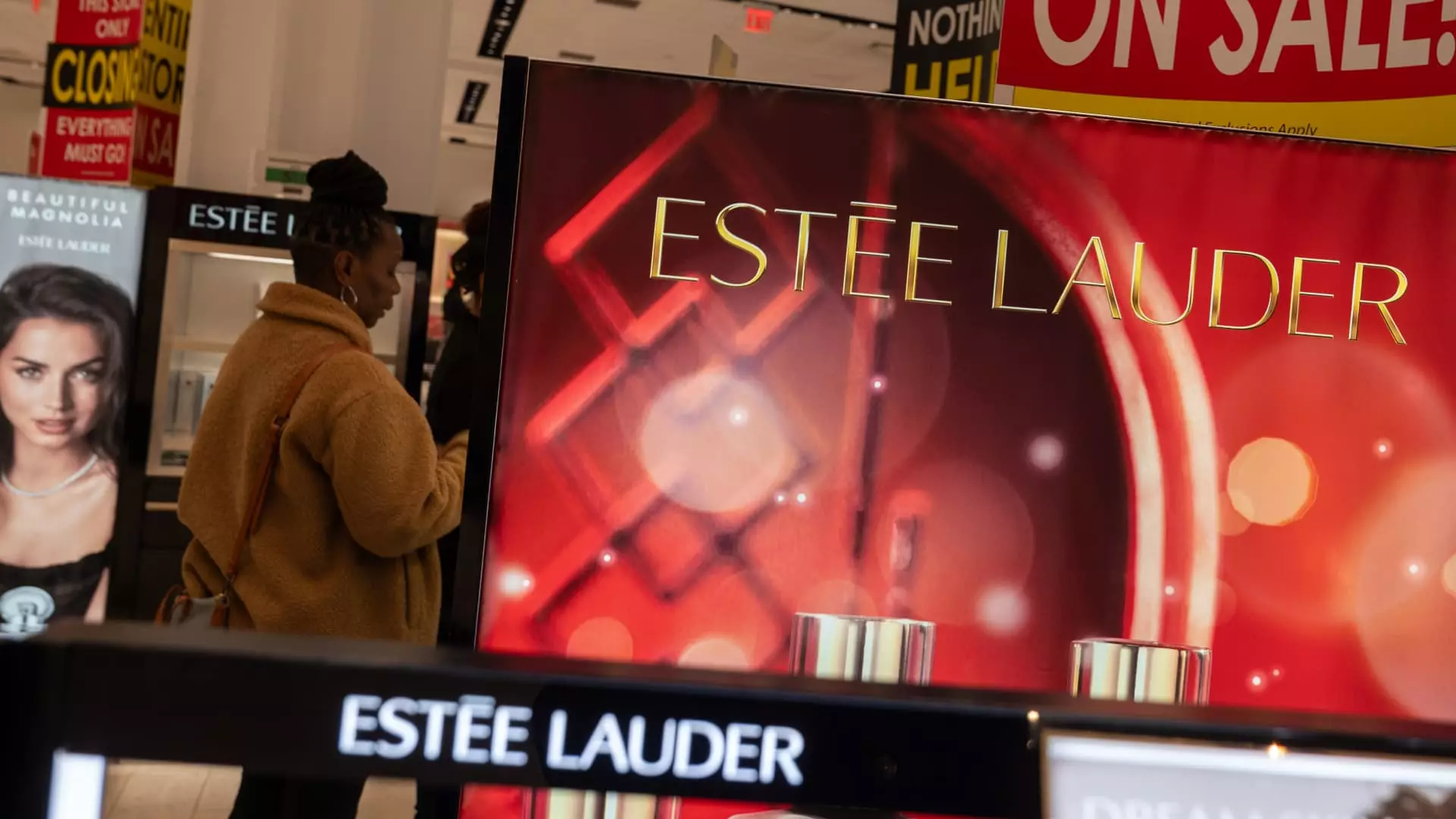The beauty industry faced a tumultuous week as several prominent stocks, including E.l.f. Beauty and Estee Lauder, experienced significant declines largely attributed to disappointing earnings reports. E.l.f. Beauty endured its steepest weekly decline in over five years, with shares plummeting by close to 29%. Despite surpassing revenue expectations for the fiscal third quarter, the cosmetic company fell short on adjusted earnings per share, prompting a revision of its annual revenue forecast down to between $1.3 billion and $1.31 billion, compared to an earlier projection of $1.32 billion to $1.34 billion.
In an interview, E.l.f. CEO Tarang Amin highlighted a general downturn in the cosmetics sector, reporting a 5% decrease in January. He attributed this trend to a post-holiday slump and a decline in online consumer engagement. Analysts reacted to the news by downgrading the stock, with firms like Morgan Stanley, D.A. Davidson, and UBS marking it as neutral or equal weight, indicating diminished growth prospects.
Estee Lauder also saw its stock take a significant hit, dropping 22% in a week marked by adverse financial forecasts. The company announced plans to reduce its workforce by 5,800 to 7,000 roles by the conclusion of fiscal 2026. Furthermore, softening demand in the Asian travel retail sector is expected to negatively impact net sales for the third quarter, overshadowing their positive second-quarter revenue and earnings results.
CEO Stéphane de La Faverie acknowledged the company’s missteps, stating, “Simply said, we lost our agility. We did not capitalize on the higher-growth opportunities.” This admission reflects a broader industry challenge where brands have struggled to stay agile and responsive in a rapidly changing market landscape.
The downtrend was not limited to E.l.f. or Estee Lauder; other major brands like Ulta Beauty and Coty also faced pressure, experiencing declines of 9% and nearly 8%, respectively. For Ulta, this week represented the worst downturn since April, while Coty suffered its worst week since October. During E.l.f.’s earnings call, Amin noted signs of declining sales at Ulta, indicating trouble at one of its major retail partners, further highlighting the interconnected challenges within the beauty retail environment.
Compounding these challenges, the industry must navigate the geopolitical landscape that threatens profit margins due to tariffs. Following President Trump’s imposition of additional tariffs on Chinese goods, China reciprocated with tariffs on select U.S. imports. Given that E.l.f. manufactures approximately 80% of its products in China, the potential impact of these tariffs is significant. Nonetheless, Amin expressed a degree of relief over the tariff rate being set at 10% instead of an initially proposed 60%.
As these developments unfold, the beauty sector’s outlook remains uncertain, facing not only financial difficulties but also external challenges that may hinder recovery. Companies must innovate and adapt swiftly if they wish to regain their footing in this volatile market.

